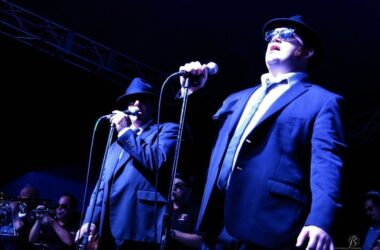NEW YORK—(ENEWSPF)—June 5, 2015
By: Stefanie Jones
“Transformational festival” is a phrase that’s often used to describe festivals that intend to help you evolve and better yourself and the world around you. California-based Lightning in a Bottle(LiB) certainly fits this description, but they take it another step further: the way they have chosen to manage potential drug use at their event has the power to transform the way all festivals address drug use and safety issues.
The guiding principle behind LiB’s drug policy was the concept of harm reduction, acknowledging that despite efforts to maintain a drug-free event people will nonetheless use drugs – and that our primary concern should be keeping these people and others around them safe.
In 2015 LiB had more going on in terms of harm reduction than any other festival in the United States – by far. They had drug education and harm reduction group DanceSafeback for the third year. They also had the Multidisciplinary Association of Psychedelic Studies’ (MAPS) Zendo Projectfor the second time, a safe space for people having a difficult psychological experience, whether drug-related or not. They also invited the PLUR Angels, a group rising out of the festival scene that uses roaming volunteers to spot anyone who may be having a tough time and provide connection to medical services or Zendo.
Zendo worked with 62 guests over the course of the roughly five-day event. DanceSafe, whose work is much more high-traffic and public-oriented, estimates they distributed over 1,000 pieces of harm reduction literature and saw over 3,000 visitors come by and engage at their booth. This is a pretty good showing for an event that sold out for the first time in 2015, showing growth of 33% since the previous year and welcoming 20,000 attendees to its second-year home at the San Antonio Recreation Area, located midway between Los Angeles and San Francisco.
And what’s the result of all this? A festival with no deaths, no major medical incidents, and a persistent feeling of goodwill amongattendeesand their local law enforcement and public health hosts in Monterey County.
After the event, I talked with Richard Gottlieb of RGX Medical, who heads medical services at LiB. He had this to say:
“Harm reduction is part of everything we do, from the incredible volunteer groups we have onsite all the way through to the way I run my medical team. I’ve built relationships with Monterey County and they trust us to handle the vast majority of anything that happens at the festival.”
It’s exactly the kind of story we want to see coming out of any festival. Through my work with DPA’s Music Fan programand with the blessing of the LiB organizers, I was able to help tell that story before the eventand continue it now. The key point being: harm reduction saves lives.
You would think more festivals would be jumping on the bandwagon, but most have been slow to adopt the concept. It was a major coup when the SFX-backed TomorrowWorld festival invited DanceSafeto their initial Atlanta-area outing in 2013. Since then, we are slowly seeing more festivals make space for this kind of education and harm reduction onsite.
But LiB has lapped them all – maybe because they have an advantage that others don’t. LiB is organized by The Do Lab, an independent company that doesn’t have myriad layers of corporate decision-making to wade through or a bastion of conservative lawyers on staff. Good ideas can rise and be implemented quickly, especially with key festival organizer Dede Flemming willing to have the conversations necessary with Monterey County agencies to make sure the harm reduction approach is well understood and supported.
LiB may have set a new bar for the U.S., but in many other countries comprehensive harm reduction is the norm. Portugal’s Boom Festival, for instance, incorporates one element that even LiB does not: drug checking.
Drug checking – onsite testing of drugs for dangerous adulterants – is a crucial intervention given the rapidly diversifying synthetic drug market. It allows people to discover if the substance they intend to take is what they expect and keep themselves safe.
In the U.S. drug checking is often prevented from taking place because the practice requires the presence of small amounts of drugs, and the personal use kits are sometimes (though not always) considered drug paraphernalia under state laws. Portugal’s Boom Festival gets to sidestep all that since the country has decriminalized the use and possession of all drugs since 2001. This clears the pathfor a truly health-focused event.
As drug policy reform and harm reduction move into the mainstream of U.S. politics, there are signs that attitudes are changing. DanceSafe, the main drug checking service provider in the U.S., was able to do itthis past Memorial Day weekend at Summer Campoutside of Chicago – with the festival’s promotionand without law enforcement interference.
Over the next few years, let’s hope more festivals take an integrated health-centered approach to managing drug use, with the support of their local venues and agencies. I’m proud of the work that LiB has done to bring so many different harm reduction elements together, and hope to help lead other festivals to follow in their footsteps.
Stefanie Jones is the nightlife community engagement manager for the Drug Policy Alliance.
Source: www.drugpolicy.org








